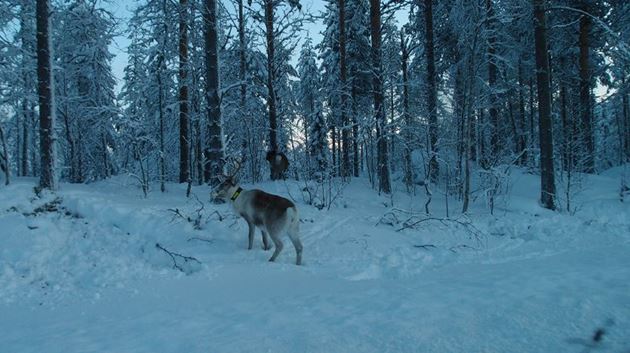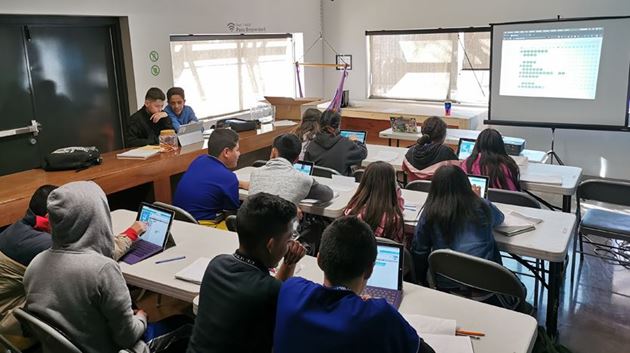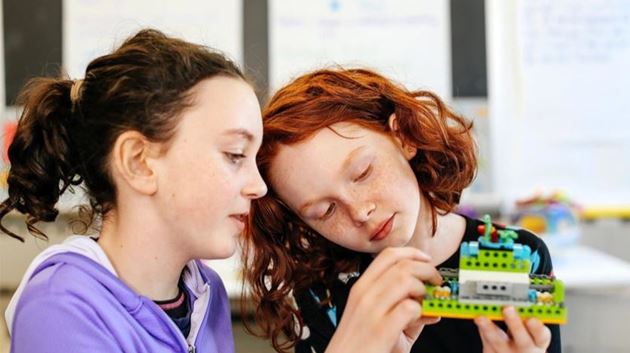
Innovation 4.0. to fight climate change
Madrid / 24 September 2020
Innovation is one of the vectors that drives social progress and creates tools to address new challenges. This is particularly so in our current digital age. Consequently, given the urgent need to tackle climate change, we also need the momentum of Innovation 4.0, which is based on knowledge management and disruptive technologies. Siemens Gamesa, supported by the Basque Government's BIND 4.0 programme, is exploring new initiatives based on artificial intelligence (AI) and gamification, such as an AI algorithm to avoid even the slightest flaw in the production of blades for wind turbines, the use of satellites for real-time monitoring of wind farms, and programmes for interactive learning of factory processes.
Innovation is one of the vectors that drives social progress and creates tools to address new challenges. This is particularly so in our current digital age. Consequently, given the urgent need to tackle climate change, we also need the momentum of Innovation 4.0, which is based on knowledge management and disruptive technologies. Siemens Gamesa, supported by the Basque Government's BIND 4.0 programme, is exploring new initiatives based on artificial intelligence (AI) and gamification, such as an AI algorithm to avoid even the slightest flaw in the production of blades for wind turbines, the use of satellites for real-time monitoring of wind farms, and programmes for interactive learning of factory processes.
These innovative processes do not necessarily arise in large companies—they are often produced by small businesses or start-ups that can provide flexibility, a high degree of adaptability, and agile responses. Those qualities dovetail with the investment capacity, methodology and experience of large companies.
BIND 4.0 was created precisely to encourage and nurture this symbiotic relationship. It is an initiative from the Basque Country that seeks to provide new opportunities for start-ups from around the world to partner with large Basque companies in creating innovative projects that advance Industry 4.0.
Siemens Gamesa participated in this programme for the third year in pursuit of our goal of generating clean energy as efficiently and sustainably as possible. Mónica Pérez de Larraya, Open Innovation Manager, said: "Climate change is an urgent social and environmental problem that needs innovative solutions. This programme enables us to implement projects quickly, which is vital for rapid prototyping, as required by the agile methodology. She added that “this year we have worked with start-ups on three projects focused on digitalisation and artificial intelligence, which will help us to continue providing efficient, disruptive solutions."
In the coming weeks a new edition begins in which more than 750 start-ups from 73 countries will participate. According to Peter Enevoldsen, one of the professionals at Siemens Gamesa's new Digital Venture Lab, “this programme provides a good opportunity to develop digital capabilities and generate successful synergies benefiting all parties."
BIND 4.0 was created precisely to encourage and nurture this symbiotic relationship. It is an initiative from the Basque Country that seeks to provide new opportunities for start-ups from around the world to partner with large Basque companies in creating innovative projects that advance Industry 4.0.
Siemens Gamesa participated in this programme for the third year in pursuit of our goal of generating clean energy as efficiently and sustainably as possible. Mónica Pérez de Larraya, Open Innovation Manager, said: "Climate change is an urgent social and environmental problem that needs innovative solutions. This programme enables us to implement projects quickly, which is vital for rapid prototyping, as required by the agile methodology. She added that “this year we have worked with start-ups on three projects focused on digitalisation and artificial intelligence, which will help us to continue providing efficient, disruptive solutions."
In the coming weeks a new edition begins in which more than 750 start-ups from 73 countries will participate. According to Peter Enevoldsen, one of the professionals at Siemens Gamesa's new Digital Venture Lab, “this programme provides a good opportunity to develop digital capabilities and generate successful synergies benefiting all parties."
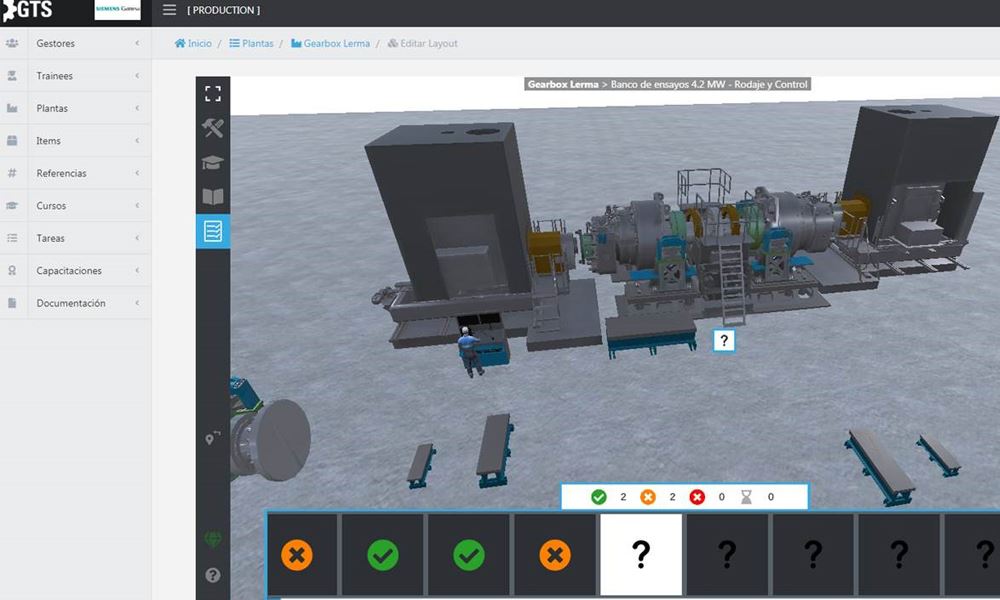
Satellites for real-time monitoring of wind farm construction
The construction of a wind farm is a complex process involving a considerable amount of civil engineering, component logistics, and turbine installation in the appropriate order. Work progress is normally monitored on-site, by visiting the projects and compiling all possible data.
In contrast, Jaime Herce, from the Balance of Plant (BOP) Quality Department, and Iñigo Fernández and Daniel Ascacibar, from the Digital Projects Area, are working on a project that revolutionises project supervision and improves planning.
In contrast, Jaime Herce, from the Balance of Plant (BOP) Quality Department, and Iñigo Fernández and Daniel Ascacibar, from the Digital Projects Area, are working on a project that revolutionises project supervision and improves planning.
In partnership with Spanish start-up Taniwa, they have devised an artificial intelligence system, called Ikusat (from "ikusi", which means "see" in the Basque language, and "sat", from "satellite"), which monitors progress with wind farm construction. Using satellite images, the system observes how each element of the project advances, from construction of the roads to carry the colossal components up to assembly of each turbine.
"Since this is an AI system, it needs to be fed with hundred of images so that it can ultimately process the information autonomously. First, it needs to go to school; later it will produce results," said Jaime.
As Iñigo explains, by digitalising all the information, they have real-time data on which to base better and faster decisions. The benefits are clear although, as Jaime notes, "This is just a first step; it opens up a huge range of possibilities that we are just beginning to glimpse."
"Since this is an AI system, it needs to be fed with hundred of images so that it can ultimately process the information autonomously. First, it needs to go to school; later it will produce results," said Jaime.
As Iñigo explains, by digitalising all the information, they have real-time data on which to base better and faster decisions. The benefits are clear although, as Jaime notes, "This is just a first step; it opens up a huge range of possibilities that we are just beginning to glimpse."
Artificial intelligence for blade inspection
The blades of a wind turbine can over one hundred metres long and must be able to withstand high-speed winds when installed in a wind farm. As a result, the quality inspection once a blade is completed is a delicate process that requires the utmost precision.
Jesús González, head of non-destructive testing in the Onshore Wind Unit, his team-mate, Juan Jesús López, and the rest of their team are developing an autonomous ultrasound system for blade inspection. This is a mobile platform in which a robot analyses the blades using ultrasound and sensors capable of detecting the tiniest defect that might undermine a blade's structural integrity once installed.
This inspection produces an enormous amount of data that needs to be evaluated to detect defects. To this end, Jesús is relying on German start-up Relimetrics.
Jesús González, head of non-destructive testing in the Onshore Wind Unit, his team-mate, Juan Jesús López, and the rest of their team are developing an autonomous ultrasound system for blade inspection. This is a mobile platform in which a robot analyses the blades using ultrasound and sensors capable of detecting the tiniest defect that might undermine a blade's structural integrity once installed.
This inspection produces an enormous amount of data that needs to be evaluated to detect defects. To this end, Jesús is relying on German start-up Relimetrics.
They are developing an artificial intelligence algorithm that automates this data analysis and streamlines the entire inspection process. Like any system of artificial intelligence, it needs to be trained. Therefore, they have spent months feeding the programme patterns of good and bad images, so that the algorithm can ultimately produce results autonomously.
Although the system is still are under validation and testing, Jesús says the experience has been very positive so far: "This tool can help increase the capacity of our quality control processes and maximise efficiency."
Although the system is still are under validation and testing, Jesús says the experience has been very positive so far: "This tool can help increase the capacity of our quality control processes and maximise efficiency."
Learning through play is also possible in a factory
It's not always easy to know a factory's processes and be able to perform new tasks.
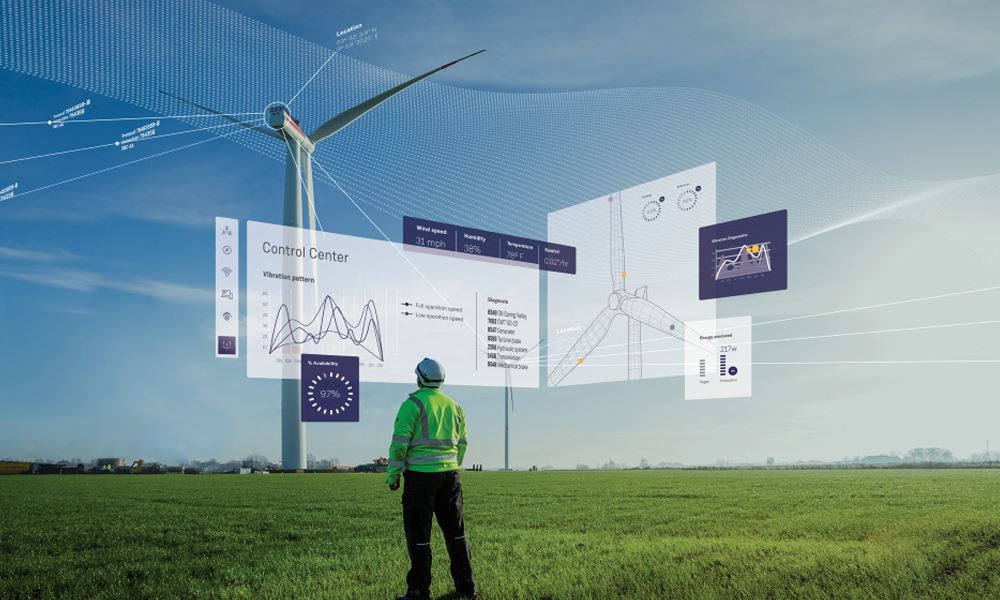
Harri Aurrekoetxea, Innovation Manager at Siemens Gamesa, thought the gamification experience of start-up Binary Soul might help with this task because, as they say, a picture is worth a thousand words.
The pilot project, which is already being tested in the Lerma (Burgos) and Asteasu (Guipúzcoa) factories, is a programme with all the documentation associated with a particular job. Using all this data, it generates interactive 3D tests that plant staff take to validate their knowledge.
There are numerous advantages. On the one hand, putting training online avoids group sessions that can hamper production. In addition, each person learns at their own pace."Previously, we were never sure if everyone had grasped the essentials; now, once they complete the test, we know that they have," says Harri.
These are just some examples of how technological innovation opens up a whole new world of possibilities for advancing with the decarbonisation of our industry, which promotes economic growth based on clean, sustainable energy. The green recovery depends on us.
The pilot project, which is already being tested in the Lerma (Burgos) and Asteasu (Guipúzcoa) factories, is a programme with all the documentation associated with a particular job. Using all this data, it generates interactive 3D tests that plant staff take to validate their knowledge.
There are numerous advantages. On the one hand, putting training online avoids group sessions that can hamper production. In addition, each person learns at their own pace."Previously, we were never sure if everyone had grasped the essentials; now, once they complete the test, we know that they have," says Harri.
These are just some examples of how technological innovation opens up a whole new world of possibilities for advancing with the decarbonisation of our industry, which promotes economic growth based on clean, sustainable energy. The green recovery depends on us.

